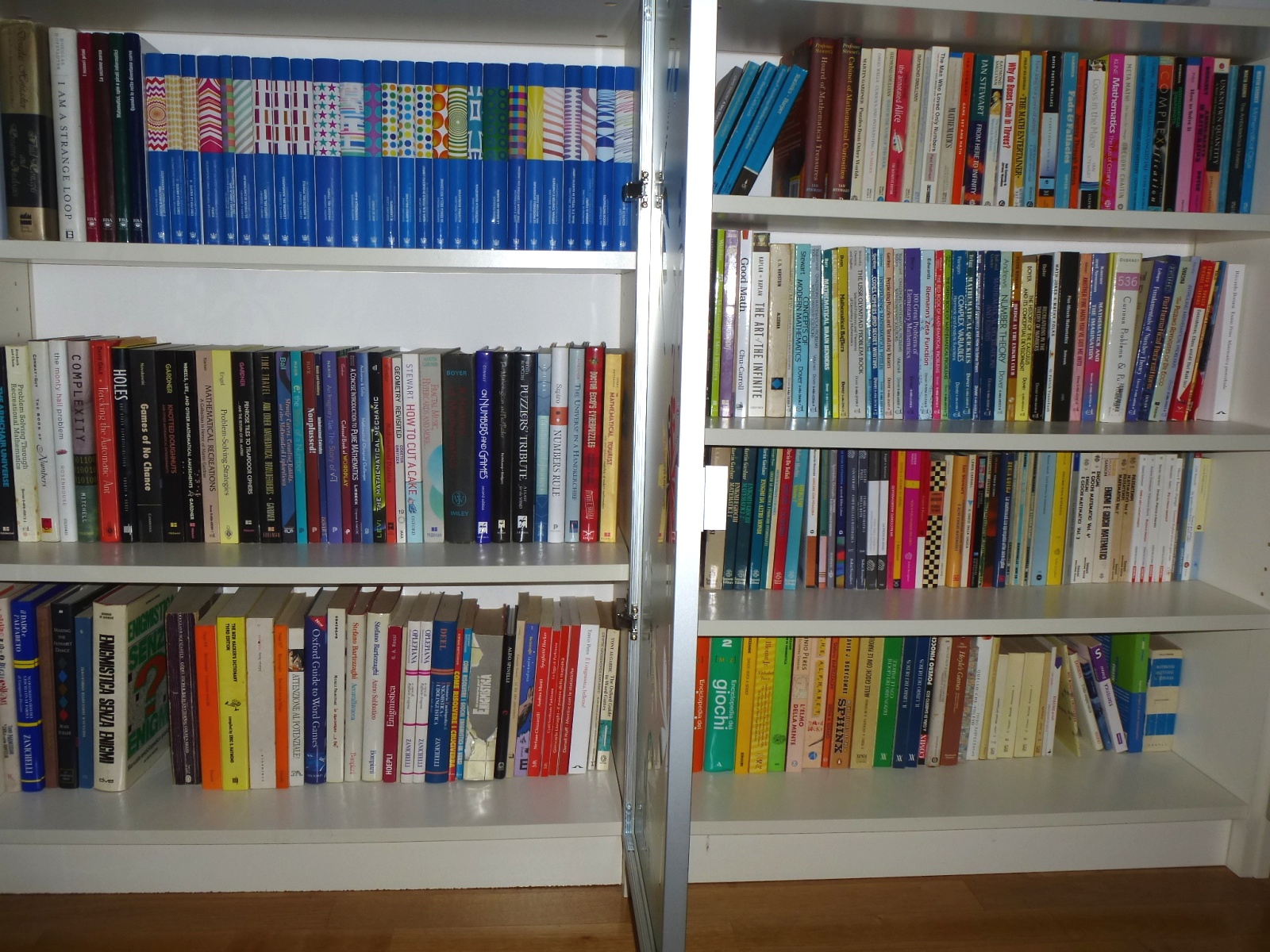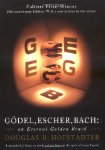
Who are you, and what do you do?
I'm Maurizio Codogno (aka .mau. - please add both leading and trailing dot). I am usually at a loss when I am asked what I do: on Facebook I ended up writing "it's complicated". Let's say that I am paid for producing documentation which can actually be read - and I assure you it's not simple at all!
Besides this I did, and I am still doing, a lot of things, mainly on the Internet (which I am surfing since 1984, and that's not a typo). I even contributed to some of the IETF standards, but nowadays I content myself with being the spokesperson of Wikimedia Italia and a popularizer of mathematics.
What books have influenced you the most?
I cannot but start with Hexaflexagons and Other Mathematical Diversions by Martin Gardner, or actually its Italian translation Enigmi e giochi matematici, vol. 1. I stumbled upon it when I was 14 or so: I always loved mathematics, but actually I was interested in performing mathematical operations. With that book, and all the following ones in the series, I learned that mathematics wasn't just this, but it was ideas, wit, and even philosophy. Well, I cheated about the last one. It took me a long time before acknowledging it.
Then there was Gödel, Escher, Bach, this time in English (I grew older, I was 19 when I grabbed it first). I knew about Douglas Hofstadter because he was the successor of Martin Gardner in the column on Scientific American. I found the book in the library of Scuola Normale Superiore (hidden in the attic, philosophy (!) section) and perused it. From that book I first discovered the holistic approach to writing: you may talk about serious science and be at the same time lively and funny. When I knew that an Italian translation was published, my first comment was "How did they manage to translate it?"; never would I have thought that I'd going to wind up as a translator of Hofstadter!
Exercices de style by Raymond Queneau, in the Italian translation by Umberto Eco, had a double effect on me: I learned that even a trivial text may be the starting point of an exciting book, and I first learned about the power of constraints in creating art, that is, the very purpose of Oulipo. As a bonus, I noticed that while Eco generally made a superb work he did not manage to get the spirit of the mathematical exercises: this was a boost for my self-esteem, since I saw that I could do something better than an established author.
Last, The Hitch-Hiker's Guide to the Galaxy by the late Douglas Adams hooked me to the British - or maybe I should say "Adamsian" - humour. To seem to be dead serious is in my opinion the best way for being funny... or at least to annoy 90% of readers, the ones I would not be interested in knowing about. Besides, Adams - like all the other authors I mentioned, except Eco - was not the kind of person who thinks that science and literature must be separated. It's sad that in Italy this is not yet the case.
What book would you like to write?
Yet another book? Well, there are indeed at least three other books I would like to write, if I had the time and a publisher interested in them. The first one is a revisitation of the mathematics studied in high school, from the point of view of what you can actually do with this (supposing of course that you may do something with it: unbelievably, logarithms can, but I still do not know what to do with polynomials).
Then there is a text about the Wikipedia ecosystem, both in theory and in practice. Wikipedia is like a bumblebee: it should not work, but since it does not know it then it works. Who knows, maybe if somebody would explain what are the differences between Wikipedia and an encyclopedia, then some journalist will get it right.
Last but not the least, I would write a book about the social networks seen by somebody who does not come from so-called social sciences. I am tired of reading crap from people who use a catch-phrase - like "the long tail" - without understanding when and how it may be really used.



